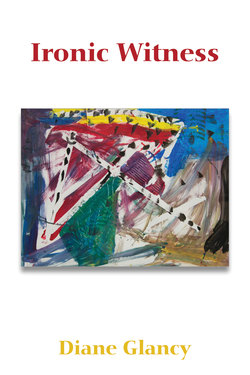Читать книгу Ironic Witness - Diane Glancy - Страница 11
На сайте Литреса книга снята с продажи.
At Its Deadliest
ОглавлениеOften, I heard Frank making grunting sounds, as if each breath took an effort. As if it was a chore, a strain. I wanted to put him out of his misery. I think I knew, eventually, we’d put him in a grave beside Daniel in the Winscott family plot in the cemetery north of Fenton.
I began to notice he could not work as he used to. He would tire by afternoon. In the evening, he could not even read.
Then I found him asleep in his chair.
“Are you in pain?” I asked, pushing the mop of hair from his forehead. “Do you hurt anywhere?”
“No,” he said. He did not. He was just weary of study. It interested him, but he couldn’t hold to it. He would have to wait until morning. I think he worked at night in his sleep. I could feel him reading beside me. That’s what dreams must be. Journeys we map for ourselves. Or maybe it’s a journey the dreams map for us. At least a portion of them, anyway. But then, in the darkest night, something else happened. The subconscious took over and became the engine room. Often I woke with an idea about another ziggurat, thinking how to form the flames in a different way. There were many levels to sleep. I was glad of my tiredness at night.
I worried about Frank and me from time to time. I hoped that we would remain absorbed by our own attitudes and foolishnesses until there was nothing left of us. I hoped that we wouldn’t have that long waiting period to die, but that we would simply vanish at the end of our work.
I thought of my ziggurats as I peeled potatoes of an evening—they seemed terraces for a ziggurat. As I stirred the pan, I made concentric circles.
Journal entry, August 21: How hard to tell what a wild, rough, and stubborn wood it was.
—Dante, The Divine Comedy, canto 1
What happened to the children that used to run through the house? Where was the group of friends that gathered on the sofa and chairs on Sunday evenings to talk about The Divine Comedy? Maybe Frank and I had to work to forget it all.
—
My husband could spend the morning in his study with the smell of old books. His bookshelves covered the walls from floor to ceiling. If he had a new book, it soon absorbed the smell of the old. What was language? How many ways were there to say what he wanted to say? How could Scripture be interpreted? Over and over, until the language changed its meaning in a subtle way that was hardly noticeable until it was too late. Or if one sentence changed but another did not, a new way had to be configured to read their relationship to one another.
Why did we even need language to say what was needed? Meaning seemed to be in the image. The seen object. The object seen. The impact of the visual. Say, ziggurats, for instance.
I heard Frank and Uncle John Winscott arguing over some Biblical passage. I hadn’t even realized John had arrived. He seemed to appear like one of those mushrooms that came up unexpectedly on the lawn.
“Do you know what that means if you change one word—subvert it so that you don’t notice it at first? Can’t really, because your mind gives you what you think it should. That’s the enemy,” Frank said to John. “Not language. Not separate words. But the overall engine that gauges it. That weighs it. That subverts it. That is the master cylinder. The master changer. The human mind that is full of tricks. A magician.”
Well, it was better than the sad life of a traveling clown.
—
Often on Sunday we made it to church. Frank in the front row, always leaning forward. I was afraid he’d levitate to the pulpit. John, also a retired minister, was poised to follow.
Often, Uncle John and Thelma came to our house after church for supper. After the meal, we left the men to themselves. We shared e-mails from our children and walked through the leaves in the yard down the drive to the road.
—
“Should we go for a walk?” Frank sometimes asked. Should we drive to Fenton? Should we go to the store? Should we find a shore where we can collect shells? Should we try to live again? The answer was always no. We would rather work. A new ziggurat was coming. Another possibility for translation. We couldn’t be caught away from our desk and the table in the work shed. It was too risky. We might not be able to reconnect if we were gone too long. But we took risks each day with our work. We were made of risk. It was always inside our work shed and study, where the possibility could exercise itself. That was the main ingredient—the proximity to where the risk could unrisk itself.
Frank loved translation. English into English. That was no small task.
Language is wobbly at best. Because meaning rides upon it—communication and understanding—which is survival. It is absolutely devastating at worst. It can turn upside down. It can sit crosswise in the stream. It can confuse. Subvert. It’s a game of interpretation. At its deadliest, it is war.
